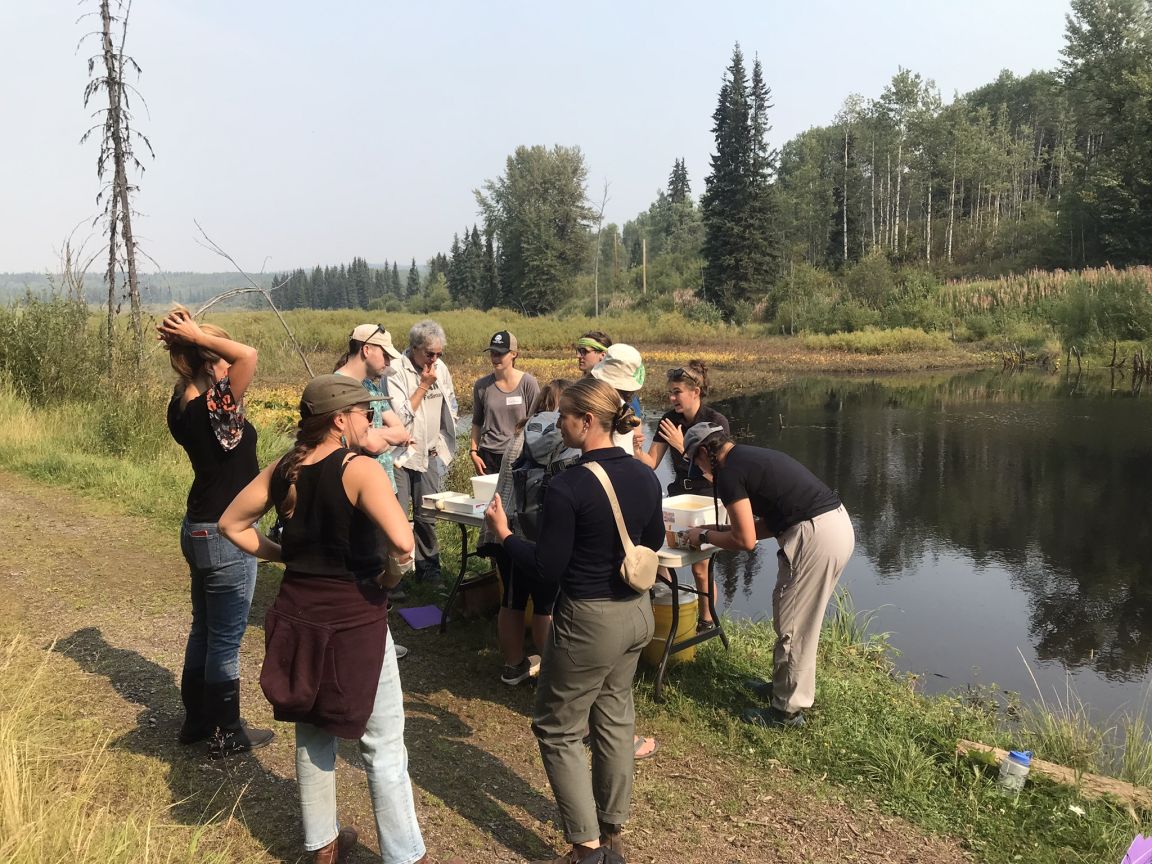
Amplifying Lessons from the Koh-Learning in our Watersheds Program: An investigation into transformative education and design
Project Description
The Koh-Learning in our Watersheds (“Koh-Learning”) program is a UNBC-SD91 collaboration focused on the benefits of learners, educators and partners learning together about ‘Koh’ – a word for waterway in the Dakelh language. Koh-Learning emphasises education system transformation nested within community and watershed contexts. As a systems-change initiative, Koh-Learning aims to fuel youth (Indigenous & non-Indigenous) to become informed, connected stewards and change agents for the well-being of their environments and communities, influencing decisions and processes affecting their futures. Launched in May 2019, Koh-Learning activities are now taking place in schools throughout SD91. The school-based activities are conducted through SD91 with support and coordination from UNBC. This ‘Amplifying Lessons’ research project aims to explore the design of the Koh-Learning program and how the design affects program impacts and Koh-Learning goals.
Youth are key to thriving rural and remote communities. There is much evidence that youth, particularly Indigenous youth, are disconnected from school and learning. Koh-Learning began as an intentional effort to address youth disconnections from school by offering land-based approaches to learning. The program called Koh-Learning in our Watersheds: Transforming education by connecting students, communities and waterways began in 2019 with three transformative learning goals: 1) foster student stewardship of their local environments; 2) develop student influence and connections across community sectors; and 3) empower students as change-makers within and beyond their own systems. In 2021, a fourth, over-arching goal was added: 4) contribute to decolonizing and Indigenizing the BC Ministry of Education and Child Care K-12 curriculum for enhanced student success, by honouring diverse ways of knowing, supporting student agency, and centering well-being in education.
The intentions of Koh-Learning come from how we design the program’s learning experiences. Through explorations of historical and present-day practices in Koh-Learning, this ‘Amplifying Lessons’ research project seeks to understand: How might the intentional design and implementation of the Koh-Learning program offer lessons that can support future learners, educators and educational designers to shift practices of “mainstream” schooling to support the development of practical wisdom to enhance leadership and learning. Importantly, this research project seeks to amplify lessons for the benefit of future learners, educators and educational designers as well as to support theory development and education research.
This study is funded by Vancouver Foundation and is research ethics board (REB) approved. Dr. Parkes (Co-Investigator of this study) is the lead behind the Koh-Learning in our Watersheds Program, including funding and oversight/supervision of paid research team members, so will act as a co-investigator and participant.
Research Question
How might the intentional design and implementation of the Koh-Learning program offer lessons that can support future learners, educators and educational designers to shift practices of “mainstream” schooling to support the development of practical wisdom to enhance leadership and learning?
Who can participate?
- Collaborators involved in Koh-Learning in our Watersheds
- SD 91 Administrators involved in Koh-Learning in our Watersheds
- SD 91 Educators involved in Koh-Learning in our Watersheds
Project Information and Consent
You are being invited to take part in the “Amplifying Lessons” research project because you are engaging or have engaged in Koh-Learning activities as a collaborator, educator and/or administrator, as a result, we believe you will bring valuable insights that inform the design and evaluation of the Koh-Learning program. If you choose to participate in this research project, you may withdraw at any point, with no consequences and your data will be removed.
If after reading the Amplifying Lessons Collaborator Information and Consent Form you would like to participate, please complete the Consent Survey. Please note, you will be asked to provide an email in the survey which the research team will use to book an interview.
Interviews
Data collection for this “Amplifying Lessons” research project will include interviews. Participation in this research project is completely voluntary. Interviews will last between 15 to 30 minutes and will be audio recorded. All research data derived from audio recordings will be aggregated (combined together), anonymized and kept strictly confidential between the members of the research team (Principal Investigator, Co-Investigators and Research Assistant).
Project Team
Principal Investigator
- Dr. Hartley Banack, Assistant Professor
Co-Investigators
- Dr. Margot Parkes, Professor
- Deb Koehn, District Vice-Principal, School District 91
Contact Information
For more information, please email Dr. Hartley Banack at hart.banack@unbc.ca or call 250-960-5317.
If you have any concerns or complaints about your rights as a research participant and/or your experiences while participating in this study, call the Office of Research and Innovation at 250-960-6735 or email reb@unbc.ca.